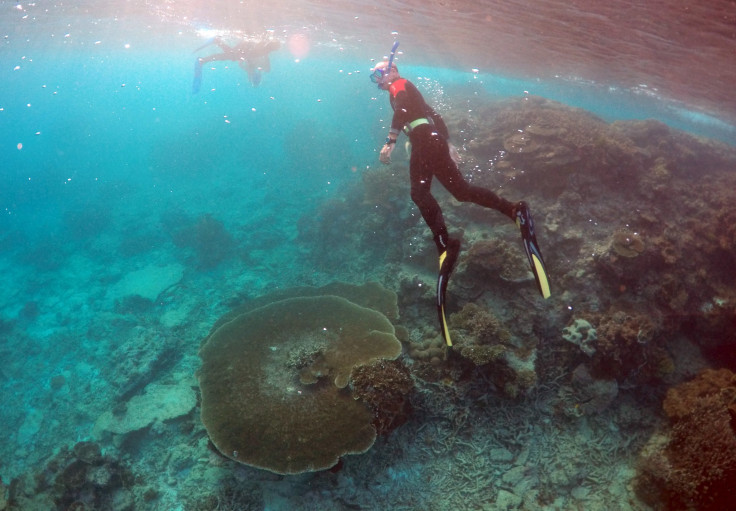The Great Barrier Reef and El Niño: Bleaching poses severe extinction threat; Indian mining giant Adani under scanner

The current El Niño is one of the strongest in two decades, and if it does not alleviate this month, it can cause permanent destruction to parts of Australia’s Great Barrier Reef. Scientists on Wednesday said that the world heritage site is experiencing the worst bleaching in 15 years.
Federal authorities are panicking over this mass coral bleaching event and they have issued an urgent warning on the natural wonder, which is facing threat from climate change. According to the Great Barrier Reef Marine Park Authority, upcoming hot conditions pose a dangerous threat over the next few weeks. In many shallow areas of the Reef, patchy bleaching has already been detected and that is a cause of great concern.
The bleaching is most evident on corals around the Lizard Island, which is off the tropical city of Cairns. According to Reuters, Dr. Anne Hoggett, director of the Lizard Island Research Station, has warned that 80 percent of its coral is already bleached under the unremitting sunlight.
Dr Russell Reichelt, chairman of the Great Barrier Reef Marine Park Authority, is of the opinion that corals may die as they are under tremendous physiological stress and if the stress continues for a long time. If the corals are to survive, they immediately need a relief from the El Nino conditions.
The World Meteorological Organization has already declared 2016 is going to be the hottest and the El Niño will make it even worse. The Great Barrier Reef is the world’s largest living ecosystem that stretches 2,000 kms along Australia's northeast coast. Every year, it brings billions of dollars in tourism revenue.
Although the El Niño is expected to easy by mid-2016, it may be too late. Last May, UNESCO's World Heritage Committee was close to declaring the Great Barrier Reef as endangered.
According to The Sydney Morning Herald, 350.org, a climate action advocacy group, has urged the Turnbull government to block Australia’s largest coal mine, owned by Indian mining giant Adani. They have asked the government to halt new fossil fuel projects nationally.
“If the Turnbull government is serious about climate change, they will say no to Adani's monstrous Carmichael coal mine and put a stop to new fossil fuel development,” said Blair Palese, chief executive of 350.org.





















